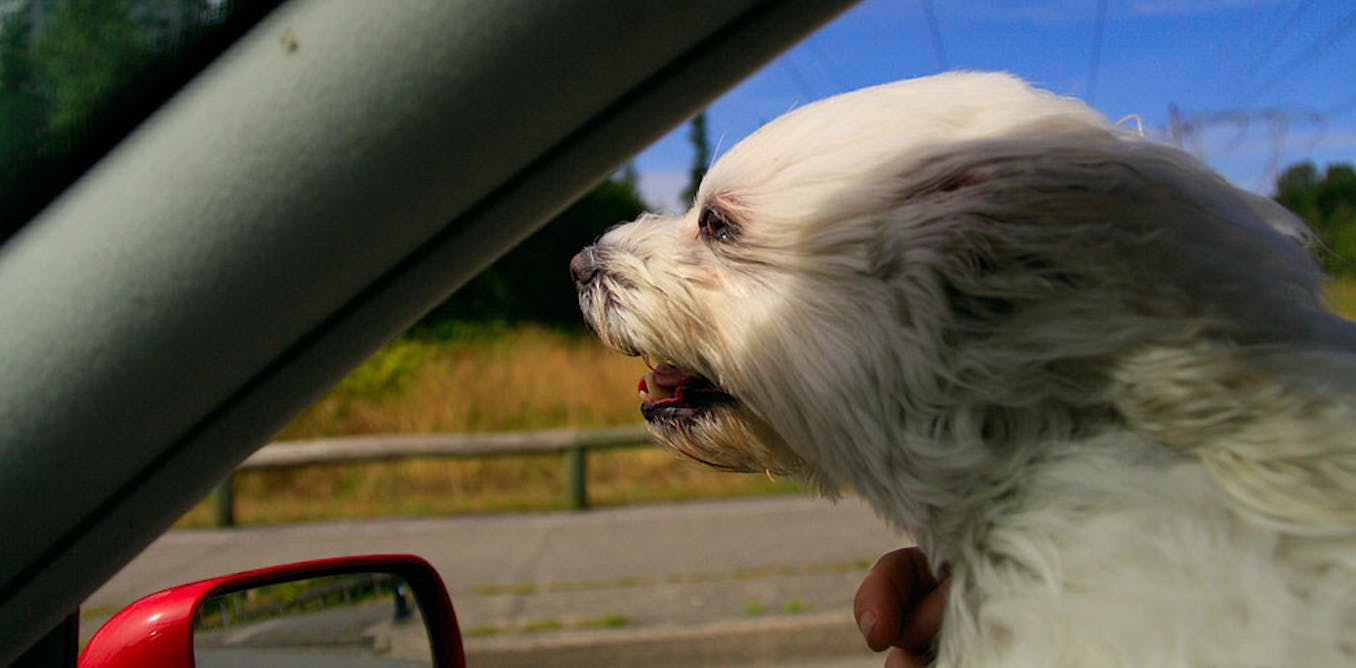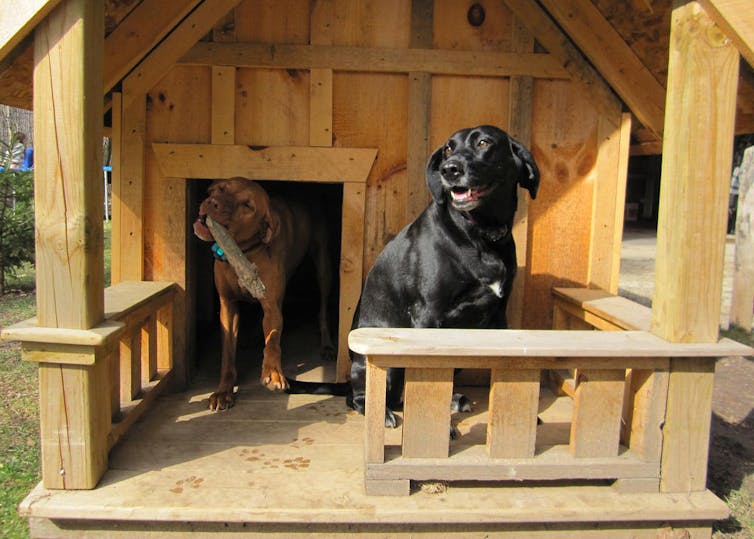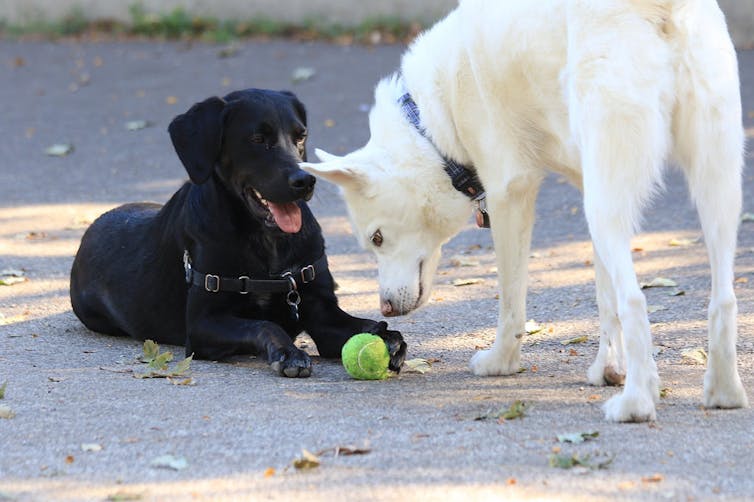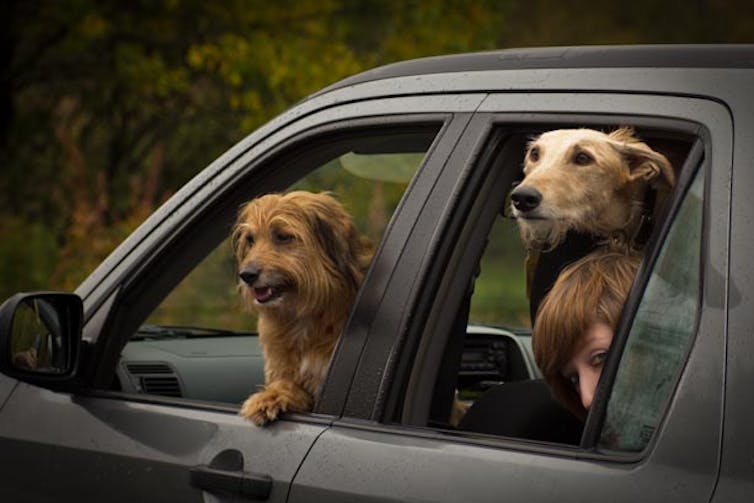
Curious Kids is a series for children. Send your question to [email protected]. You might also like the podcast Imagine This, a co-production between ABC KIDS listen and The Conversation, based on Curious Kids.
Most dogs don’t like to travel, and those that do have usually had to learn to like it.
In the wild, being too adventurous could get a dog killed, so dogs may have mostly evolved to be cautious and remain close to what is familiar. That said, dogs may see some kinds of travel as a chance to find things they want – like food or a mate.
Home sweet home
It’s normal for dogs to value the territory they know well, where they know they can find food, water and shelter easily.
It is also home to the thing most precious to them: their social group. That is, the other dogs or humans they know and like. Yes, dogs probably see the humans they live with as their social group.

Most dogs have what scientists call a “home range”. That’s the area in which they feel comfortable. At the core of the home range is its den (for example, your dog may see your home and garden as its den). Beyond that core, there’s what we call the periphery – that might be the neighbour’s front yard, the park down the road, and your street.
Dogs can recognise their home range by its smell. Have you ever noticed a dog weeing on trees and lamp-posts or scraping his hind-paws against the ground? That’s how dogs mark their territory with their own scent.
Many humans love to travel, but for dogs, travelling too far from home comes with risks. Dogs that wander into another’s territory might be outnumbered by other dogs, or overpowered by a stronger individual. Or they may return to their home range only to discover that the social group changed while they were away and they no longer fit in as well as they used to.
Travelling with friends
When we exercise dogs in unfamiliar areas, they may love the challenge of all those new places and smells to explore. Many dogs are clearly joyful as they explore all this with us, their social groups, but when alone their response may be very different.

For domestic dogs, exercise beyond the den (the house and garden) is exciting because it offers so many opportunities: to play, pee and poo in new places, to explore and eat food, to meet and greet new dogs, mark territory and find a mate.
So some dogs will take the chance to wander, if they really need to do any of those things.
Car travel – a mixed blessing
Many puppies and dogs who are not used to cars will get car-sick. But then again, cars can also be a way for dogs to encounter a cascade of odours, see new dogs, or score a stimulating walk in a new territory. Car rides can bring enormous joy to some dogs, once they get used to car travel.

For some dogs, hopping into the car is associated with a trip to the park or beach. For others, it reminds them too much of a trip to the vet where they may have had a scary experience, like having an injection.
Dogs learn to mistrust the smell of the vet’s waiting room and now some vets use calming pheromones in their clinics. Pheromones are special chemicals that can affect mood.

So, whether or not dogs like to travel might depend a lot on the individual dogs and their life experience. It may depend on whether travel reminds them of fun-filled trips or fear-filled ones.
Despite what some movies ask us to believe, very few dogs ever get the travel bug and want to explore the world. At the end of the day, they’re usually happiest at home.
[“source=theconversation”]
















